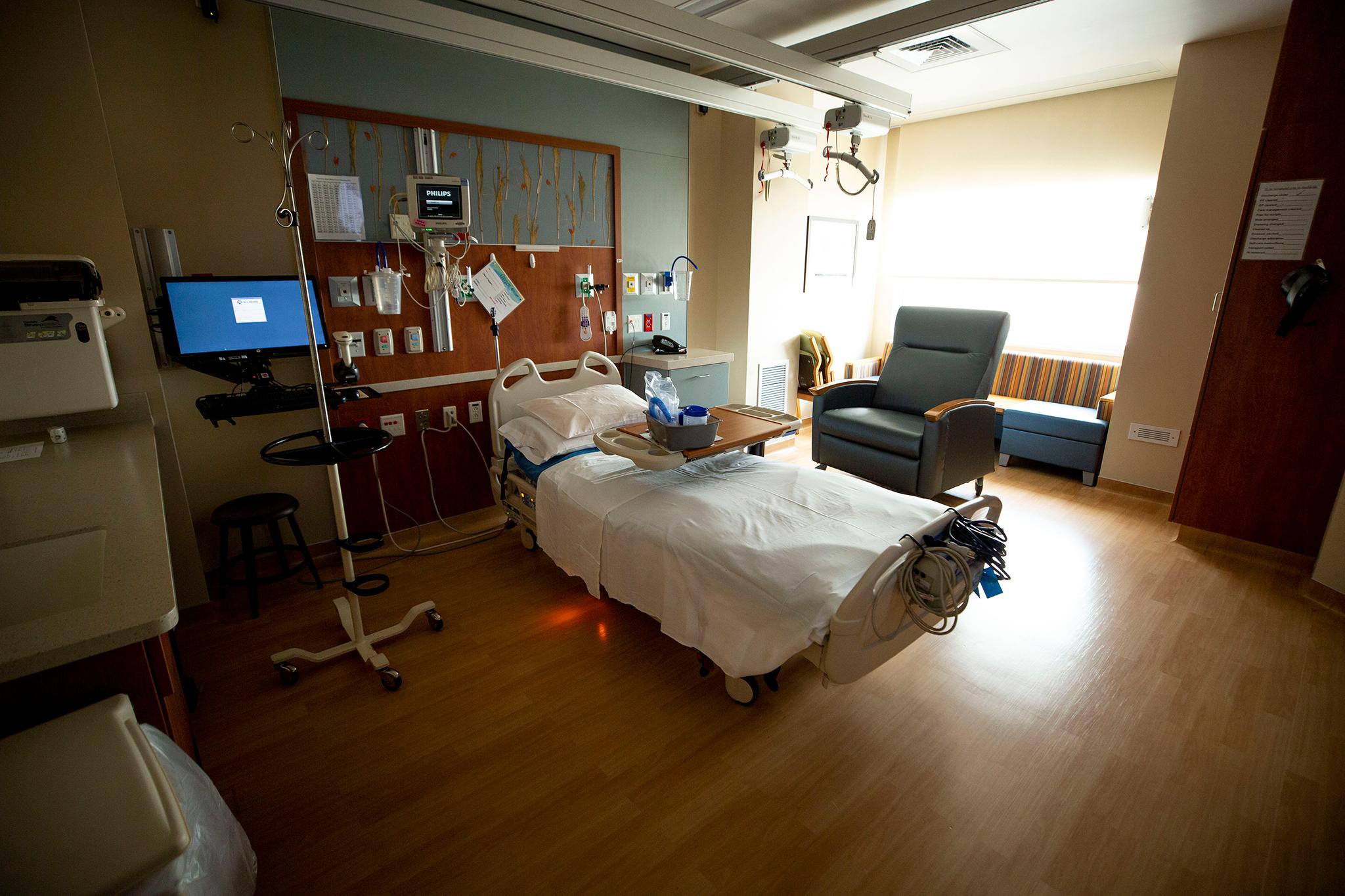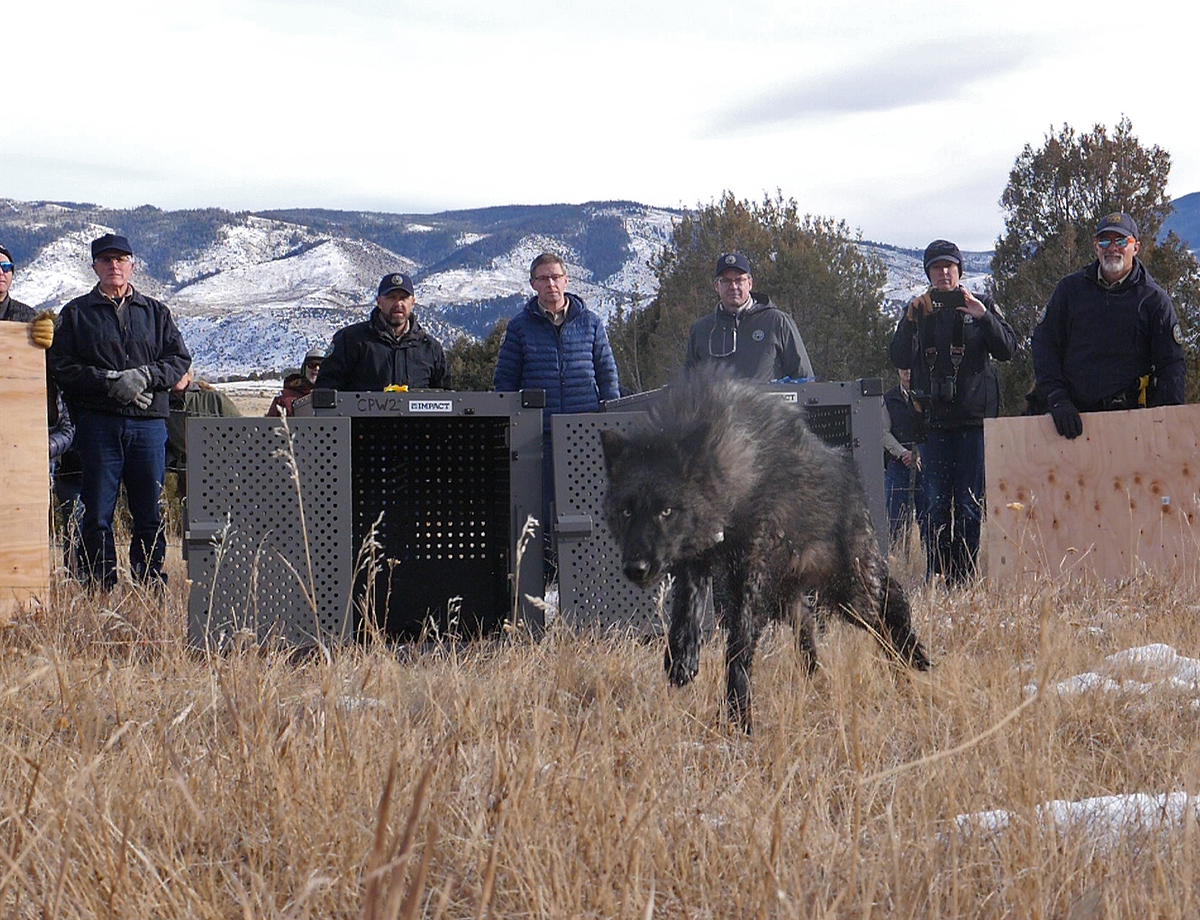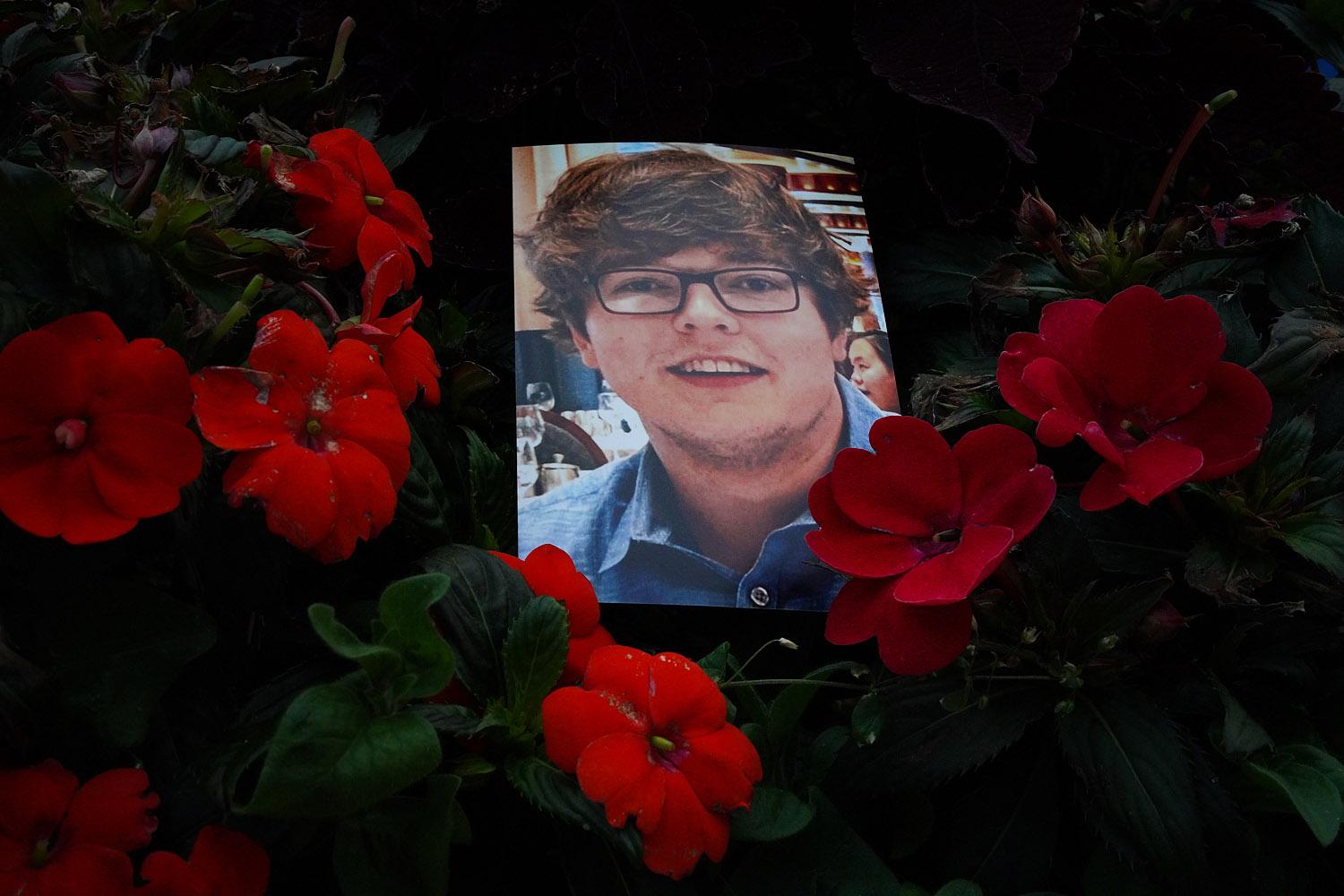
The chief medical officer at Denver Health says the hospital is seeing a spike in possible COVID-19 patients, creating a shortage of testing kits, supplies and personal protective equipment used to prevent the spread of sickness to hospital workers.
“We need an alternative for testing. We need faster testing,” said Dr. Connie Savor Price.
The state’s top safety-net hospital doesn’t have enough tests or swabs to do them at the current pace, and test result turnaround times are too long, Price said. That is severely slowing doctors’ ability to tell who has COVID-19 and who doesn't, so they can separate and treat the patients who have it.
“Everything” hinges on testing as hospitals respond to the upswing in possible coronavirus patients, said Price, who is also a professor of infectious diseases
“While we wait for those results, we're treating those patients in isolation," Price said. "And as a result, with every new patient who comes in, we are burning through our personal protective equipment to the point that we are on short supply, as is every other health care institution in Denver and likely in Colorado. And I think in the United States."
Denver Health isn’t sure how many possible COVID-19 cases it’s dealing with because of the testing delays.
“Our ICU (intensive care unit) right now is full of patients awaiting test results," Price said.
The number of patients in the unit under investigation for the virus doubled in the last 24 hours.
“We are seeing more patients present with potential COVID infection, but we've been unable to confirm whether they truly are infected or not,” she said.
The number of patients who have tested positive and are now in isolation at Denver Health jumped from five on Monday to 10 on Tuesday. It has not yet been two weeks since Colorado had its first identified case. The statewide tally stood at 183 on Tuesday night.
Price also described a shortage of two key elements of the testing process: swabs and media, which is a liquid that a sample is placed in so that it can maintain its integrity while it awaits testing.
Other doctors have confirmed these shortages as well. In an email shared with CPR News, Rocky Mountain Urgent Care was going to open a COVID-19 testing site, but the facility couldn’t get testing medium and needed more protective gear.
Price said she thinks all testing resources should now be diverted to hospitals since the state has already determined there's community spread elsewhere.
“Until we get our supply chain fixed, until we get our testing capacity addressed, we should be focusing on our healthcare system right now,” Price said, and particularly focusing on the sickest patients and those who’ve tested positive.
“We have to remember that most people with this infection will do fine. Eighty percent of the population who get infected, will have mild illness and recover," Price said. "It is those who do not recover, that are very ill, we need to focus on, we need to be able to protect them.”
So, a lot of social distancing — staying at least six feet from others and avoiding large groups — needed to be focused on the elderly and long term care facilities, dialysis centers and other parts of the system where people with illnesses are housed.
Hospitals seeing a lot of patients, and the sickest patients, need to be a priority, Price said.
“Right now that’s where testing needs to be diverted,” Price said.
She said she’s shared her request with state officials, “and I’m confident the right decision will be made.”
The governor’s office had not responded to a request for comment when this story was published.
A spokesperson for the state department of public health said in a statement:
"Our testing practices evolve daily as the situation is evolving and so are our needs. We are taking into consideration the needs of hospitals while balancing the needs of communities throughout Colorado."
The Colorado Hospital Association said in a statement it is also preparing for an influx of cases:
The association said it, "formally asked the state last Friday for more testing capacity. They have committed to doing so and are prioritizing tests coming from hospitals both for health care workers and for critically ill patients. Unfortunately, it also sounds like they may be backlogged and having a hard time catching up. From our standpoint, we are quickly moving toward surge response."
Price said she discussed the problem with leaders of the state’s other major hospital systems, which care for the vast majority of the state's population, and “we're all experiencing the same problems.”
The concerns come as the state recorded a second death due to COVID-19, a man in his 70s in Weld County.
Not every metro hospital is seeing a surge, though most contacted by CPR News say they’re only testing people who are sick enough to be admitted.
“It almost doesn’t matter what virus you have, the treatment is basically the same. So right now, we do not feel like we have enough capacity to test the … people who aren’t symptomatic enough to be in the hospital,” said Dr. Jason Kelly, chief medical officer at Sky Ridge Medical Center in Lone Tree. “Our basic philosophy is if you can’t breathe, then come to the hospital and let us help you. If you’re ok to stay at home, you should stay at home.”
To prepare for an influx, Kelly said he’s trying to encourage staff to get some rest now. Sky Ridge has 30 ICU beds and some capacity to move some ventilators from the Neonatal Intensive Care Unit to the regular hospital if it becomes necessary.
At Children’s Hospital, Dr. Sean O’Leary said they, too, are only testing kids sick enough to be admitted with respiratory symptoms.
Even though children don’t seem to be the biggest victims of COVID-19, O’Leary said they are prepared to convert some of the hospital’s pediatric capacity to young adults, if necessary, but “not 60 year-olds.”
“We’re all in this together, the more we can practice social distancing, we really need to do our best with that,” O’Leary said. “The more we do that, the more slowly this virus can spread.”
Dr. Jason Persoff, a physician leading COVID-19 response efforts at another large Colorado hospital system, UCHealth, shared somewhat similar concerns.
“We have seen a large surge in patient numbers who are being ruled out for COVID, but test centers locally and nationally are so backlogged, turnaround times are now approaching a week,” Persoff said. He's the assistant director of emergency preparedness at the UCHealth University of Colorado Hospital at the Anschutz Medical Campus in Aurora.
“So, that does place pressure on the system, since we need to use PPE (personal protective equipment) for inpatients who may have COVID," he said.
Price said hospitals were working with each other and the state to collaborate, share and find solutions.
Still another deep worry, Price said: ventilators. She said the facility had 90 of the medical devices used for artificial respiration. But with the steady growth of the number of COVID-19 cases expected statewide in the coming weeks and months, Denver Health could conceivably need all of them at once. Price cited reports out of Italy where there are protocols to ventilate two patients on the single ventilator.
“We are ready to do that if we need to, but our critical care directors really hope we don't have to get to that point," she said.
In terms of supplies, Persoff said UCHealth is implementing procedures to further conserve personal protective equipment for the long haul.
Price also detailed a long list of changes Denver Health is implementing, including putting in an emergency command structure, screening at hospital entrances for symptoms and fever, putting travel restrictions on employees, using telemedicine and planning for a surge in the hospital's intensive care units.
On Tuesday, Kaiser Permanente, the state’s largest nonprofit health plan, also announced a sweeping list of changes.
It’ll expand telehealth and virtual care, consolidate medical offices, ramp up remote test sites, and take another major step: postpone elective and non-urgent surgeries and procedures. This is to make sure Kaiser has the capacity and equipment to care for a surge in more critically ill patients.
Meanwhile, a report from ProPublica maps out scenarios for how overwhelmed the health system could become depending on how severe the coronavirus outbreak gets.
The non-profit journalism group examined the total numbers of hospital beds, as well as beds for intensive care, which best equipped to deal with most serious cases. ProPublica based its analysis on data from the American Hospital Association and the American Hospital Directory.
ProPublica also looked at the number of residents, including the 12 percent in the Denver region over 65. That group has significantly higher rates of both hospitalization and fatalities.
In the moderate scenario, in which 40 percent of the adult population contracts the disease over 12 months, ProPublica found Denver would be among the regions that would need to expand capacity.
The report estimated about 8 percent of the adult population would require hospital care.
“In a moderate scenario where 40 percent of the population is infected over a 12-month period, hospitals in Denver would receive an estimated 195,000 coronavirus patients,” the report states. “The influx of patients would require 6,510 beds over 12 months, which is 2.9 times the number of available beds in that time period.”
It found in Denver intensive care units would be especially overwhelmed and require additional capacity.
“Without coronavirus patients, there are only 330 available beds on average in intensive care units, which is 4.2 times less than what is needed to care for all severe cases,” the report found.
Those dire warnings explain the state’s emphasis on closing public gathering spots like bars and restaurants and insisting on social distancing to prevent the spread. Experts say it is the most likely way to slow the contamination.
Price commended local leaders for responding to the crisis with urgency.
“I think we're beyond containment. I think we now have to think about how we mitigate this in Colorado,” she said. In limiting public gatherings, Governor Polis and Denver Mayor Michael Hancock have made “some really impressive, important, very brave moves to make sure that we're safe."









